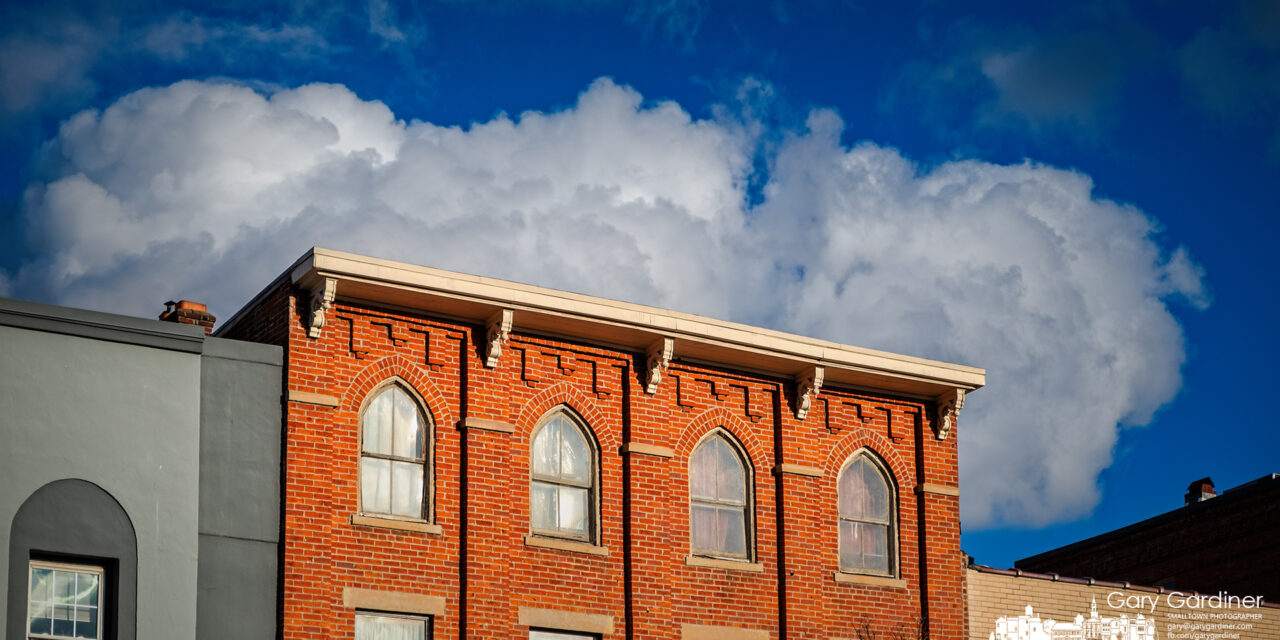Kelley Stocker – City Council Candidate
What motivated you to run at this moment in Westerville’s development?
I’ve always loved government and politics, and I tell my students that local government has the greatest impact on our daily lives. With a heart for service, I’ve been asking myself how I can contribute more to our community during this pivotal time. Running for office is how I am answering that question.
What have you heard from residents that’s challenged or reshaped how you view the city’s priorities?
Listening to residents has reinforced that Westerville’s priorities are broader than any single issue. Conversations with neighbors have shown me the importance of balancing growth with preservation, investing in all neighborhoods, and creating opportunities for meaningful community engagement. Residents have reminded me that decisions about development, services, and public spaces are most successful when they reflect the values and voices of the people who live here.
What do you believe Westerville needs to hold onto as it continues to grow?
As Westerville continues to grow, it’s essential that we hold on to our sense of community. There are many great things about our city, but our small-town feel—where neighbors know and support each other—is our greatest asset. Preserving that connection while thoughtfully managing growth should guide our decisions for the future.
How do you approach decisions that create winners and losers, like development projects that benefit one part of the city over another?
I try not to think in terms of winners and losers. I believe there is something to take away from every situation, and in Westerville, even projects that seem to benefit one area often have positive impacts for the city as a whole. As a teacher, I navigate these kinds of challenges daily—approaching them with curiosity, thoughtful analysis, and a focus on education. Running a city is a collaborative effort, not just among leaders but with residents as well. It requires a mindset oriented toward consensus-building, clear communication, and finding solutions that strengthen our entire community.
What does a balanced approach to growth look like to you?
A balanced approach to growth is deliberate and intentional. This also means prioritizing sustainable practices that are vital to the enduring health and vitality of our community. Growth should serve the larger purpose of sustaining the quality of our community while balancing housing, service, and entertainment needs. Growth also needs to happen alongside the preservation of our community values and small-town charm.
When you think about the East of Africa project, what’s your biggest hope—and your biggest concern?
My biggest hope for the East of Africa development is that it can be thoughtfully designed to balance growth with preservation—honoring its historic Underground Railroad site, maintaining green space, and supporting sustainable, native landscaping. My biggest fear is that, without careful planning, we could lose valuable farmland, mature trees, and the character that makes this area special. I believe community input and council oversight will be key to ensuring every parcel is developed responsibly, with opportunities to replenish the tree canopy and celebrate the site’s historic and environmental significance.
How do you respond to residents who feel that older neighborhoods are being left behind?
I understand the concerns of residents who feel that older neighborhoods are being left behind. Every part of Westerville deserves attention and investment, not just new developments. Our older neighborhoods are part of what gives Westerville its character and sense of community. As a council member, I would advocate for thoughtful infrastructure improvements, code enforcement, and revitalization efforts that respect the history and identity of these areas. We can find smart, balanced ways to invest in maintenance and modernization while preserving what makes these neighborhoods special.
What’s one way you would bring more public insight or influence into large-scale planning decisions?
I believe the best decisions come from listening to the people they affect. One way I would bring more public insight into large-scale planning is by creating more opportunities for early and meaningful community input—before plans are finalized. That could include neighborhood listening sessions, interactive online tools for feedback, and clear communication about how public input shapes outcomes. As a teacher, I’ve seen the value of giving people a voice and helping them engage thoughtfully. I want residents to feel informed, heard, and genuinely included in shaping Westerville’s future.
How do you see the city’s current zoning code affecting the range of housing types available, including for first-time buyers and renters?
Westerville’s zoning code plays a major role in determining what kinds of housing can be built—and right now, it can make it difficult to provide enough options for first-time buyers, young families, and renters. We need to look at our code with fresh eyes to encourage a wider range of housing types that fit within the character of our community. That doesn’t mean changing who we are; it means planning thoughtfully so people at different stages of life can call Westerville home. Balance, flexibility, and community input should guide that process.
How should city leaders weigh resident identity and neighborhood character against financial returns?
City leaders should recognize that resident identity and neighborhood character are just as important as financial considerations. Westerville’s charm and sense of community are what make it special, and they can’t be measured purely in dollars. At the same time, the city must be financially responsible to maintain services and invest in improvements. I believe the best approach is to find creative solutions that honor our neighborhoods while also supporting smart, sustainable development—ensuring that growth enhances rather than diminishes our community’s character.
What kind of partnership should exist between council and residents, not just legally, but in spirit?
The partnership between council and residents should be built on trust, transparency, and open communication. Legally, the council represents the community, but in spirit, it should feel like a true collaboration—listening to concerns, sharing information, and engaging residents early in decisions that affect their neighborhoods. I see my role as making sure people feel heard and informed, helping translate complex issues into clear choices, and encouraging thoughtful dialogue. When residents and council work together in good faith, our community grows stronger and decisions reflect the values of the people who live here.
What would success look like for you as a council member, in both policy and relationships?
Success as a council member means making thoughtful, balanced policy decisions that strengthen our community while preserving what makes Westerville special. Equally important is building strong, trusting relationships—with residents, fellow council members, and local organizations—so that collaboration, transparency, and open communication guide every decision.
What do you want future residents to thank this council for?
I want future residents to thank this council for making Westerville a community that balances growth with character, invests wisely in all neighborhoods, and gives every resident a voice in shaping our city’s future. I hope they see a council that strengthened connections, encouraged innovation, and made thoughtful decisions that preserved what makes Westerville special while preparing it for the years ahead.
What was not asked in this questionnaire that needs to be answered?
One thing this questionnaire didn’t ask is how I plan to foster collaboration across all parts of our community—between residents, businesses, schools, and local organizations. Building a stronger Westerville isn’t just about policies; it’s about partnerships. I believe in finding smart, creative ways to bring people together, whether through supporting the arts, investing in neighborhoods, or encouraging civic engagement. Future decisions should reflect not just the needs of today, but the shared vision of our entire community.


